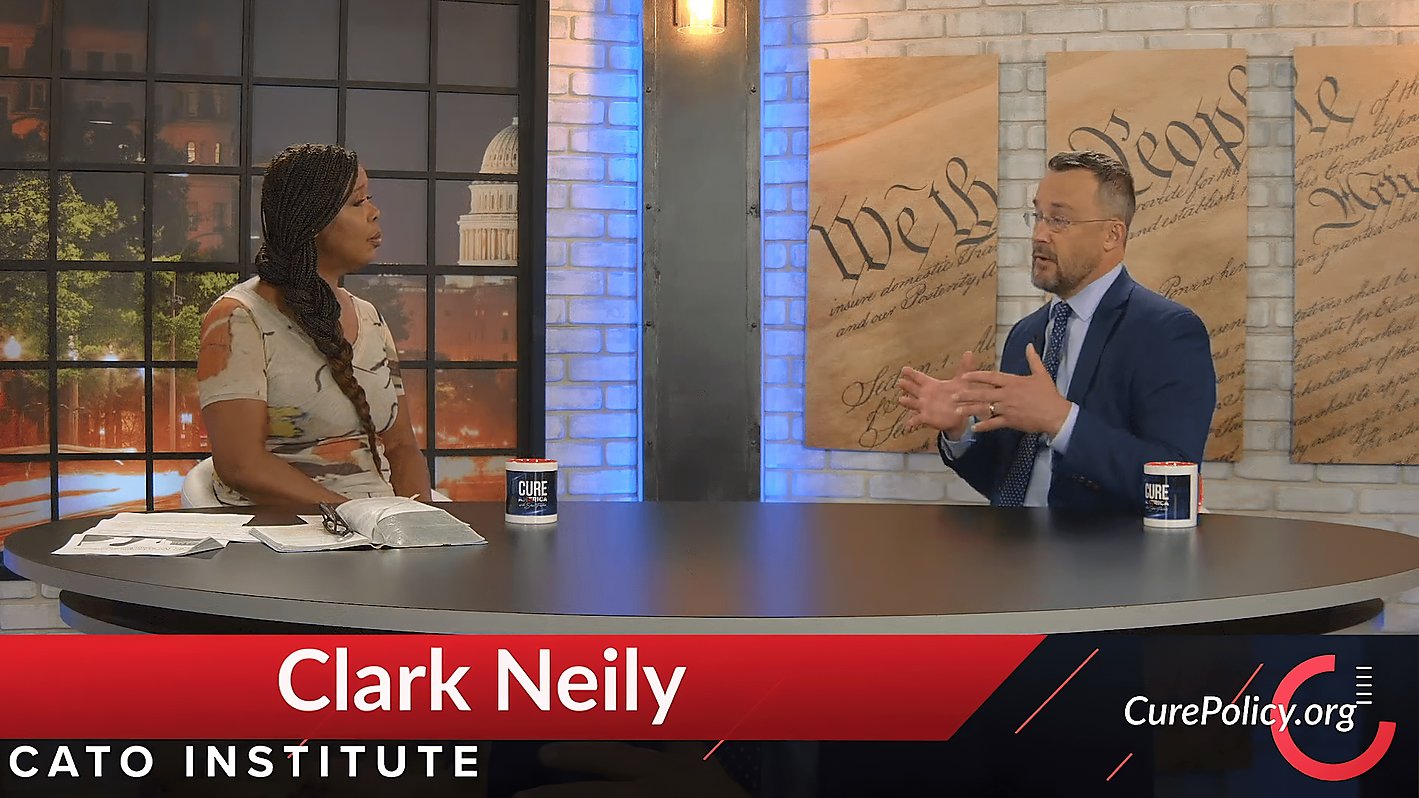For nearly 50 years, police and other government officials have enjoyed the protection of a wholly illegitimate, judicially invented legal defense called “qualified immunity.” Cato Senior Vice President Clark Neily and activist Star Parker talk about how qualified immunity came to be the cornerstone of our near‐zero‐accountability policy for law enforcement and why the time has come for Congress to replace that misguided approach with one of full and fair accountability.
The Invention of Qualified Immunity
In 1982, the Supreme Court invented the defense of qualified immunity out of whole cloth in order to give police and other government officials extra protection against civil lawsuits by requiring would-be plaintiffs to show that the illegality of the misconduct at issue was “clearly established.” This requires plaintiffs to identify a preexisting case in the same jurisdiction with nearly identical facts. If that case does not exist, then even meritorious claims will be dismissed.
Public Confidence in Police Is Plummeting
According to a Gallup poll from August 2020, public confidence in police is at a record low. This is a huge problem because it is impossible for police to do their jobs effectively without the confidence and support of the communities they serve. Simply put, when people don’t trust police, they won’t work with them.
Qualified Immunity Lumps the Good Cops In with the Bad Cops
Besides protecting the proverbial bad apples, qualified immunity makes it difficult for professional, rights-respecting police who do their jobs with honor and integrity to distinguish themselves from officers like Derek Chauvin, whose misconduct ends up tarring the entire law enforcement community.
You Will Not Believe What This Cop Did to Melanie Kelsay at a Swimming Pool in Nebraska
Qualified immunity routinely produces outrageously unjust results, such as preventing Melanie Kelsay from suing the police officer who viciously assaulted her at a public swimming pool when she walked away from him to go check on one of her children.
Police Pepper-Sprayed a Nine-Year-Old Girl Right in the Eyes and Then Blamed Her
Police in Rochester, New York, handcuffed a nine-year-old girl who was having an emotional meltdown and then pepper-sprayed her right in the eyes when she didn’t get in the squad car fast enough. They told her, “You did it to yourself.”
The Law-Enforcement Lobby’s Employer-Liability “Compromise” Leaves Taxpayers Holding the Bag
Seeing the handwriting on the wall, the law-enforcement community has come up with a half-baked “compromise” that would let individual officers completely off the hook by giving them complete immunity from civil liability and requiring their victims to sue the police department instead.
Make Police Carry Professional Liability Insurance
Getting rid of qualified immunity and making police internalize the cost of their own misconduct will prompt local governments to experiment with better solutions, potentially including professional liability insurance for police, which, among other things, will help price the worst cops right out of the profession.
Police Do Not Need Qualified Immunity to Do Their Jobs
Contrary to the misconceptions fostered by the law enforcement community, police do not need qualified immunity to protect them when they make split-second decisions on the street. Those protections are already built into the relevant constitutional standards—including the Fourth Amendment’s prohibition of unreasonable use of force—and juries have historically been quite sympathetic to police who acted reasonably under the circumstances.




